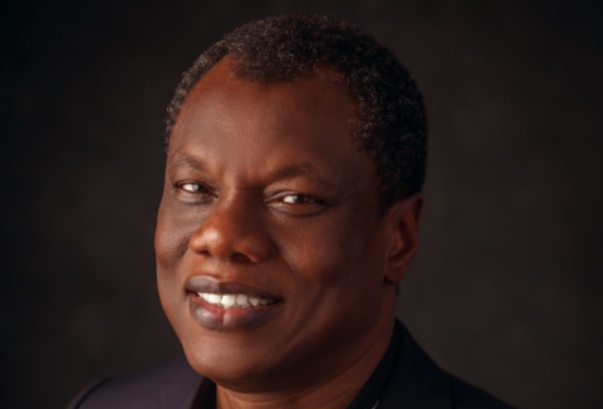General News
NativeLand and AfroNation: A Tale of Two Cultures?

By Austin Okere
As we start a new year 2020, it is expedient to take stock of the gains in the bourgeoning creatives industry in West Africa’s two biggest economies; Nigeria and Ghana, given their increasing contribution to the GDP of both countries.

Austin Okere
Penultimate December 2018 was a groundswell period in the evolution of young African Artistes in the region. It was also the great year of collaboration between local artistes and their international counterparts of African descent.
The major musical concerts in Lagos and Accra were NativeLand and AfroNation respectively. NativeLand, whose traditional home is the Muri Okunola Park in Lagos is in its fourth year. It is put together by lifestyle platform Native Magazine, founded by Seni Saraki and Teezee to cater mostly to teenagers and young adults, many studying overseas and returning home for the holidays.
AfroNationon the other hand is billed as the first festival to celebrate the African Diaspora and is organised by 34-year-old Nigerian promoter from Dagenham who goes by the name SMADE – real name Adesegun Adeosun Jr. alongside his business partner, Obi Asika.
They rotate their concerts in different countries. The debut event which held on the beaches of Portimao, Portugal, saw 20,000 people of African descent gather for four days of festival, featuring live music from Nigeria, Ghana, Tanzania, Jamaica, the UK and the US.
To consolidate on the solid foundation laid in the penultimate year 2018, both organisers advertised much bigger versions of their shows for Dec 2019. AfroNation opted to host their festival at Laboma Beach at Accra, Ghana, while NativeLand opted to continue at their traditional location in Lagos.
First off the block was NativeLand with a supposed star studded event at the Muri Okunola Park. Like the previous edition in 2018, where the advertised headliner Burna Boy was a no-show, many of the major acts advertised in 2019 also did not show up.
Some claimed that sound quality and other technical issues forced them to cancel . Just for context, this park is at a very busy traffic intersection with very limited crowd capacity and no provision for parking.
It is at best a good location for small to medium sized outdoor events. For some strange reason, the organizers oversold tickets by multiples of the park’s capacity.
The inevitable happened. The park was full to the extent that there was no blade of grass left for an extra person to stand on, and there was still a very large crowd outside waiting to be admitted. In fact, the VIP tickets were so oversold that the stage housing them collapsed, sending them onto an inelegant mangled sprawl on the ground.
The crowd outside surged in a throng and the gate fell. The security personnel hired to man the single gate serving as entrance and exit, went into overdrive, hitting and kicking the paying customers, aka “the crowd” with horse whips and boots.
A stampede ensured, many people fell and were trampled, many lost their eye glasses. Mobile phones, wigs and other customer valuables were snatched. The scenario could best be described as luring people to a rendezvous and then inviting mayhem upon them. Many went home with bruises and lot more ended up in hospitals with broken bones.
The AfroNation event at Accra was an entirely different matter. It was a four day show packed with local and international artistes and timed to coincide with the “year of return” theme of the government of Ghana, wherein Africans in Diasporas are encouraged to return to the continent.
According to Wikipedia, up to 1.5 million tourists were expected in Ghana by the end of the year 2019, with up to 1.9 billion dollars also expected to be accrued in revenue as a result of the Year of Return activities.
The event was very well advertised and organised and was so popular that you could hardly get a flight or hotel room in Accra if you left your booking till three months to the event. The huge success of the 2019 version of Afronation was no surprise.
In their debut in Portugal, no expense was spared when it came to acts, and it boasted performances from Afrobeats and Bashment icons such as Burna Boy, Davido, Busy Signal and Buju Banton. Notable black British artists also graced the stage, such as J Hus, Ms Dynamite, Stefflon Don, Octavian, Mostack and Ms Banks. All the acts advertised in 2019 showed up to perform. This will no doubt solidify the platform for a successful AfroNation 2020; but wither NativeLand 2020?
The major puzzle is that both events were organized by Nigerians; one at Accra, Ghana and the other in Lagos, Nigeria. Is this down to a tale of two cities and their cultures? The Sahara Reporters’ headline; “Police Dismiss Officer Over Killing Of Man At Wizkid’s Concert” was very telling.
The victim attending the Starboy concert at the Eko Atlantic Energy City at Victoria Island, Lagos was shot dead after a heated argument outside the premises. The fact that the same Wizkid performed at AfroNation at Accra without incident fully makes the point.
I attended the AfroNation concert on Sunday Dec 29 at Laboma Beach. The set up was very much like any large concert in Europe or America. There were ambulances, enough conveniences and a generally pleasant party ambiance. Oh! I forgot to add that I did not encounter a single “area boy” or miscreant at the event or in the car park when I was leaving at 3.30am. There was no report of stampede, shooting or death.
While I commend the entrepreneurial spirit of the young men behind NativeLand, they have to learn the ropes about patience in building a brand, offering customer value and reaping full benefits sustainably. The flawed shortcut mentality of maximizing profit at all costs and taking customers for granted is not sustainable in the long-term.
The organisers of NativeLand put out a revised apology statement on twitter a day after the event which was still generally regarded as short on remorse and with no genuine intention to recompense. Without restitution, how can they learn to be accountable, and ensure that this disaster does not repeat in the future.
“Our Youth are our future, we cannot afford to play ostrich while they fall astray. It is not too late to do the right thing. Their progenitors and anybody who wishes them well should advise them to robustly come forward and be the men they want to become when they “grow up”.
As a nation, we need to re-examine the culture of aggression and lawlessness in our cities that has become a major disincentive to tourism and badly needed investments.
Austin Okere is the Founder of CWG Plc, the largest ICT Company on the Nigerian Stock Exchange & Entrepreneur in Residence at CBS, New York. Austin also serves on the Advisory Board of the Global Business School Network, and on the World Economic Forum Global Agenda Council on Innovation and Intrapreneurship. Austin now runs the Ausso Leadership Academy focused on Business and Entrepreneurial Mentorship
General News
Kaspersky Reveals How Digitalisation is Influencing Family Life

Kaspersky’s latest global research shows that mostly all people currently interact with their family members digitally: 86% of all participants communicate with family via messaging apps, 58% have regular video calls, and 44% have even established joint streaming service accounts.

While digitalisation offers unprecedented convenience and flexibility in family communication, Kaspersky experts warn that this increased online connectivity demands a heightened awareness of digital safety practices and the protection of devices.
Communication in the digital sphere has become an integral part of everyday life. Thanks to video calls and instant messaging, we can maintain connections with our loved ones, no matter where we are.
Digitalisation has reshaped not only how we communicate, but also how we spend our free time together. Kaspersky has conducted a survey* to reveal the common patterns of modern family life in the digital age and discover the cybersecurity challenges that lurk beneath our screen interactions.
Cyber safety during family communication
According to the survey, regular messaging via WhatsApp, Telegram, Signal, Viber and other messenger apps were top of users’ choices when communicating with their families.
People in the 35-54 age group were the most likely to engage this way, with 89% of respondents choosing this option. Video calls were a much less popular option among respondents as a way of keeping in touch with relatives, with only 58% choosing this digital solution.
Another popular way of staying connected online for many families is exchanging posts and memes on social media and messengers (53%). The 18-34 age group leads this trend with a 58% participation rate, showcasing how humor and shared cultural references are becoming essential family bonding mechanisms.
The older generation (above 55 years old) is in general less digitally engaged than other ages, though the share of those who chat with their families in messengers is on par with the average (85%). 42% of this age group even exchange memes and posts via social media.
Despite the fact that older people are more active in the digital sphere, they may still not be ready to face cyber threats and scams. Users should therefore educate their older relatives on how to stay safe online and use gadgets securely.
Even for advanced users, communication online carries potential cyber security risks. From phishing attempts disguised as legitimate messages to sophisticated social engineering attacks, the digital battlefield operates within our most personal communication channels.
To ensure the complex protection for your messengers it’s highly recommended to enable two-factor authentication where possible, use unique, complex passwords for each account, remain skeptical of unexpected links or attachments, use a reliable security solution with anti-phishing protection for messengers and follow security tips from Kaspersky experts.
Family accounts – convenience or risk?
The survey shows that in their free time 70% of families choose to watch movies together, with 44% having family streaming accounts. Online games do not have such popularity as a family pastime, with only 35% of general respondents opting for them.
While sharing streaming subscriptions and gaming accounts may seem like a cost-effective solution, it opens the door to a host of digital vulnerabilities that can compromise your family’s security and privacy, especially when an account is used by different family members under the same login and password. Such accounts create a perfect storm for security breaches.
If one family member’s device is compromised, hackers gain access to the entire account. Additionally, password reuse across multiple platforms means that a single breach could expose your financial information, email accounts, and other sensitive data. To manage all passwords securely, it’s highly recommended to use a password manager for all family members.
“As our family life moves more and more online, it opens up amazing ways to stay close and create memories – but it also brings new risks, like scams and hacking. Kids and older relatives can be especially at risk, so looking out for each other online is really important.
“Protecting your digital privacy and using cybersecurity measures is an important way to care for your loved ones and keep your family safe”, comments Marina Titova, Vice President for Consumer Business at Kaspersky.
General News
NCC Slaps ₦250,000 Fee on Trial Licences to Spur Telecom Innovation

Nigerian Communications Commission (NCC) has rolled out a new ₦250,000 application fee for companies seeking temporary approval to test innovative telecom services, aiming to fast-track sector modernisation while safeguarding consumers.

NCC
The fee targets the newly launched Interim Service Authorisation (ISA), a short-term licence enabling telecom operators, startups, and tech firms to trial novel offerings in live markets before full commercial rollout. Contained in NCC’s freshly published General Authorisation Framework, the charge covers administrative processing, with successful applicants potentially facing extra costs for spectrum or numbering resources.
Under the rules, firms pay the ₦250,000 upfront upon application. Trials run for an initial three months, renewable once up to six months total, capped at 10,000 users and restricted geographically. Operators must prove their service is genuinely new, detail regulatory hurdles, outline consumer safeguards, and submit monthly reports, all while upholding data protection, security, and rights obligations.
NCC Executive Vice-Chairman Aminu Maida, who previewed the draft in July, said exploding tech advances had outstripped old licensing models, necessitating reform to foster innovation without skimping on public safeguards. The ISA lets providers gauge technical viability, market appetite, and risks, while regulators scrutinise quality and impact pre-scale-up.
“This framework strikes a balance—unleashing experimentation in spectrum sharing, Open RAN, and alternative connectivity, minus the pitfalls of unchecked rollouts,” an NCC statement noted. Participation offers no automatic path to full licences; commercial bids hinge on fresh evaluations and category fits.
Industry players hailed the move as a risk-reducer for unproven ideas, potentially slashing flop costs in Nigeria’s cut-throat telecom arena. With participation limited and monitoring rigorous, the NCC bets on controlled pilots to propel breakthroughs, cementing Africa’s giant as a digital vanguard.
As operators eye 5G-plus frontiers, the ISA arrives amid investor clamour for agile rules, positioning Nigeria to harvest homegrown tech leaps without consumer blowback.
General News
Naira Smashes Through ₦1,400 Barrier in Official FX Rally

Nigerian naira strengthened to a record high of about ₦1,400 to the US dollar at the official market during midweek trading, continuing an appreciation trend seen since the start of the week.

FX
Data released by the Central Bank of Nigeria (CBN) showed that the currency appreciated by 1.26 per cent on Tuesday, January 27, at the Nigerian Foreign Exchange Market (NFEM), with the dollar quoted at ₦1,401.22. This represented a gain of ₦17.73 compared with the ₦1,418.95 recorded on Monday, January 26.
The naira had already posted significant gains in the previous session, closing at around ₦1,401.20 per dollar, its strongest level since the introduction of the Electronic Foreign Exchange Matching System (EFEMS).
The currency has recorded incremental daily gains in recent sessions, rising between 0.1 per cent and 0.36 per cent on some trading days. In the parallel market, bureau de change operators in Lagos quoted the dollar between ₦1,475 and ₦1,490 on January 27, with average buying and selling rates of ₦1,480 and ₦1,490 respectively.
Market analysts attribute the improved performance at the parallel market to enhanced foreign exchange liquidity and further regulatory reforms implemented by the CBN.
The naira has sustained its upward momentum into early 2026, building on the gains recorded in 2025, when it posted its strongest performance in over a decade, appreciating between 7 and 9 per cent against the US dollar.
Analysts generally expect the currency to remain within a relatively stable range in the medium term, with several projections indicating it will trade between ₦1,400 and ₦1,500 to the dollar this year, supported by improved liquidity and ongoing macroeconomic reforms.
The Nigerian Economic Summit Group has projected that the naira will trade at around ₦1,480 to the dollar in 2026. The group also expects Nigeria’s external reserves to rise steadily to about $52 billion, driven by the consolidation of recent reforms and sustained stabilisation efforts.

 E-Financial2 days ago
E-Financial2 days agoCBN Upgrades Licences of Opay, Moniepoint, Kuda, Palmpay, Paga to National Status
- E-Financial2 days ago
Nigeria’s 9 Top FinTech Firms Valued at $10.6Bn in January 2026

 News2 days ago
News2 days agoTech Executives Double Down on AI, Talent and Adaptive Strategies to Lead in the Intelligence Age

 E-Financial2 days ago
E-Financial2 days agoNIBBS to Boost Financial Inclusion with Offline Payment Solutions

 News2 days ago
News2 days agoDHQ Indicts Brigadier General Abubakar Sadiq, 15 Others in Alleged Coup Plot againt Tinubu

 E-Business2 days ago
E-Business2 days agoFirm Identifies AI as Common Denominator in Entertainment Industry’s 2026 Security Threats

 General News2 days ago
General News2 days agoWEBINAR: Techeconomy Business Series Hosts Experts from MTN, Interswitch, BusinessPlus, others this Wednesday

 E-Financial1 day ago
E-Financial1 day agoPayPal Goes Live in Nigeria through Paga



























